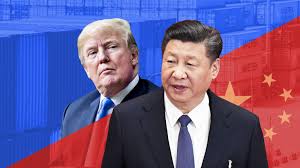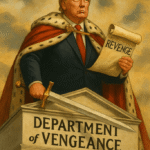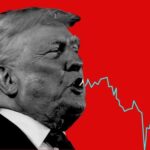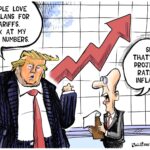The U.S. and China agreed to slash tariffs for 90 days. Don’t exhale yet. China still is a clear favorite to win its trade war with the U.S. Its leader, Xi, is fully aware that Trump is under pressure to mollify the global financial panic he created with his tariffs, evidenced by his desperate need for press coverage of every accomplishment and, more revealing, of fictional accomplishments. Xi is ready to exploit his Achilles.
The European Union has added to the pressure. It threatened to target $107 billion of U.S. goods with higher retaliatory tariffs and start a World Trade Organization challenge to Trump’s tariffs, including his duties on European cars and car parts. The EU has already approved tariffs on $23 billion worth of American goods in retaliation to Trump’s steel and aluminum tariffs.
Also, Trump’s needs to boost his lowest approval ratings on the economy —43% approval and 55% disapproval — since he took office. Although blue-collar workers remain positive, their disapproval numbers have shot up by 14% since his first term. And 54% of independents see the economy getting worse. Even in safe harbor Texas, 39% strongly disapprove of the Trump’s performance as President.
These results reflect the pressure on him to convince more than his base that his economic policies will work overtime.
Trump officials have predicted for weeks that the first trade deals to result from his tariff strategy would likely come from India, Japan and perhaps South Korea, but the financial markets are still holding their breath.
And there is limited reason to cheer about the trade agreement Trump announced with the UK. Britain was already in the lowest group for the “Liberation Day” across-the-board tariffs, already facing a 10% tariff rate. And negotiators representing both countries ignored long-standing disputes such as a digital-services tax that Britain levies on tech giants and its food-standards that block “chlorinated chicken” and the like from entering the country.
Less than one-third of U.K. respondents and 44% of Americans believed Trump would abide by the U.K. deal. A 42% plurality of British respondents said China would be a more reliable trading partner than the United States.
GOP China hawks told the country that the Chinese leadership would be desperate to negotiate a trade deal to avoid economic pain that could threaten their hold on power. They were wrong. Some mistakenly believed Treasury Secretary Bessent’s false rhetoric that China is suffering from a “severe recession, if not depression.” So, Xi’s caustic denial of Trump’s claim that he was in trade talks with China revealed the Trump administration’s negotiating and guile.
Moreover, Beijing had prepared for the trade war. It pushed businesses to strengthen supply chains and cultivate overseas markets, implemented monetary measures to support small businesses and boosted consumer demand to mitigate any reduction in exports. China has also discouraged companies from complying with U.S. sanctions by making it Illegal to do so. Xi’s stunning ability to organize and prepare his country compared to Trump’s impulsive and thoughtless decisions explain China’s advantage.
Although U.S. and Chinese officials (without Xi) will meet in Switzerland later this week, the any real progress is impaired by the lack of trust in Trump. They recall how he launched a trade war following a friendly and productive meeting in Beijing in 2017.
Shortly after Trump unfurled his April 2 tariff barrage, China began a marketing offensive with other countries to proove itself as a better trading partner. He visited several Asian countries to discuss economic partnerships and made overtures about expanding trade ties with the European Union.
Trump has repeatedly bragged about his negotiating skills, telling America he’s “the best deal maker.” As for his tariffs, he’s claimed that world leaders are “kissing my ass to negotiate and pleading ‘I will do anything, sir.’” Where are the deals? What has he accomplished? The answer: Trump’s gifted many of our trading relationships to China, where negotiating skills were most needed.







